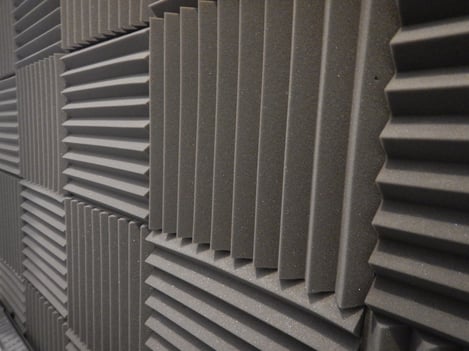Your profile picture
Nowadays your profile picture is required almost everywhere: networking platforms like ProZ.com, resumes, and even interpreting platforms. So you should know how to use your profile picture to your advantage.
You should think of your photo as a way you market yourself to potential employers of your interpreting services. In a way, your photo should illustrate the type of service that you provide and should help convince employers that you are a good fit for the post.
There’s no magic formula for this, but here are some ideas to expose what I’m trying to say here:
- If you are looking for a job as a court interpreter, you might want to have a picture in formal attire and possibly a courtroom in the background.
- If you are an interpreter for live events, it’s definitely a good idea to have a picture of you interpreting energetically next to your equipment.
You get my point.
So if you are a remote interpreter, my advice is that your resume photo looks a bit like this:
- You are dressed professionally, but not excessively.
- You are wearing a professional headset (not earphones or casual headphones).
- The image is clear and has appropriate light.
- I can see a neutral background in a completely private space.
 Photo by Mikhail Nilov from Pexels
Photo by Mikhail Nilov from Pexels
The least ideal photos I’ve seen in resumes while screening interpreters are ID card pictures and very old pictures. This tells me that the applicant doesn’t work as a professional interpreter, but has one resume for every job.
Read this guide with eight tips to get your profile picture right.
Finally, consider that recruiters often have to scroll through hundreds of applications every day, and you’d be surprised how many of those aren’t relevant for the position. Your photo alone won’t land you any interpreting job, but it may make recruiters prioritize your application if you look professional.
Industry-specific training
Next up is the type of training that you need to show your potential employer. You might have landed in the remote interpretation industry in several ways:
- You are a professional linguist or interpreter that developed an interest in remote interpreting.
- You are a professional from a different industry that decided to transition into remote interpreting.
- You are a bilingual person that sought to find an opportunity to interpret for a living.
For cases 2 and 3, your original degree or certifications are secondary pieces of information. Let’s say that you studied law or medicine; that’s good if you are looking for court interpreting or healthcare interpreting jobs, but it’s not enough to call yourself an interpreter. You’ll need to do some research and find out what the most demanded certifications for your field are.
If you are a healthcare interpreter in the US, make emphasis on the following courses and certifications that every remote interpreting employer will want to see:
- HIPAA-Compliance Certification. You can find an affordable course tailored to remote interpreting professionals here.
- 40-hour Medical Interpretation Certification. There are many courses out there, for example, the MCIS course.
- Medical terminology training.
- US Healthcare System training.
This is actually what's requested to join the ProZ.com Interpreter Network.
Your equipment
The line between an amateur and a professional remote interpreter is sometimes their equipment and workspace. A nonprofessional interpreter won’t be acquainted with industry standards and compliance policies regarding the equipment that must be used and the workspace requirements for taking private and secure calls.
I’ll tell you more, the main reason I reject interpreter applications is because they don’t have either the equipment or the required workspace conditions to provide remote interpreting services. Every recruiter will do the same because no one will give the green light to an interpreter that is sure to put clients’ privacy and security at risk.
The best-equipped interpreters I’ve seen usually have a white wall behind them or a backdrop. There are many good backdrops for video conferencing, especially those that are attached to the back of the chair. You can find them in either green or blue colors, which are standard in the industry.
In other cases, I just interview OPI interpreters (over-the-phone interpreting) and I don’t see the interpreter at all, but I can definitely tell which interpreters are prepared for the job because of the quality of their audio. Here are a few tips to get your audio spot on:
- Use sound panels to cancel any echo and absorb noises.
- Test your microphone a few times to make sure it’s in the correct position.
- Consider changing your headset if the microphone’s quality is not the best.
- Sometimes your microphone sound can be improved by adjusting a few settings on your PC.
- It may sound obvious, but make sure you have closed any doors or windows in your room before the call.
 Background photo created by sid4rtproduction - www.freepik.com
Background photo created by sid4rtproduction - www.freepik.com
Many interpreters don’t realize how important their camera is: get yourself a good webcam. If you are going to offer VRI services (video-remote interpreting), your camera is likely the piece of equipment you should focus the most on. Not only because it’s essential if you want to do video interpreting, but also because it’s very difficult to get it right. Here are a few pieces of advice to help you get going:
- Get yourself a good camera. Read some reviews and try to find a camera that adjusts to what a professional interpreter needs.
- Adjust your camera settings. Don’t just keep the default settings, there are a ton of things that you can tweak to improve your camera quality.
- Make sure it’s horizontal. It would be a shame if you bought an expensive camera just to have the image tilted. Put your camera on a perfectly horizontal and steady surface.
If I had to give you a final piece of advice about your camera, make sure that the height is also correct. I’ve had many calls with interpreters that have their cameras at the level of their keyboard and pointing upwards. That just looks awkward because you can't look into the person's eyes as you would if you were having a conversation.
Are you a professional healthcare interpreter?
If you are currently looking for a job as a healthcare interpreter, no matter the language, I’d like to hear from you.
You can get in touch with the team by completing the contact form here https://go.proz.com/start-interpreting
You’ll find more information about taking remote interpreting calls with ProZ.com on that page.



